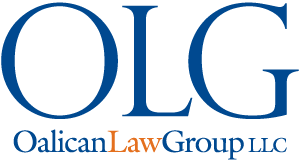MONEY IS A FUNNY THING. YOU DON’T NEED A LOT OF IT TO CREATE BIG PROBLEMS – FOUR COMMON SCENARIOS THAT MERIT A TRUST
THE FAMILY JUST GOT BIGGER: Congratulations on the new baby! Most new parents understand the importance of naming a guardian for their minor children in the event of their premature death, but what happens to the money? Inheritances left to minor children must be distributed outright to them when they reach the age of majority which is 18. For young couples, it’s not unreasonable to expect your net worth to double every ten years. Calculate your present net worth and hand it to your child in 20 years. Can you imagine what you would have done with the money at that age? A revocable trust allows parents to determine the ages at which their young adult children can access their inheritance while ensuring that the funds are used for education purposes in the meantime.
A CHILD REQUIRES PROTECTION: For some parents, there is no age at which assets should be distributed directly to their children. Spendthrift concerns, addiction problems, mental health issues, and dicey marriages are situations that often exacerbate the challenges life can present. In such cases, a revocable trust, special needs trust or irrevocable trust can ensure that inheritances are protected for the exclusive benefit of the child.
THE SPOUSE MUST BE PROTECTED: It’s the golden years. You’re well into retirement. Your kids are successful and happy. You’re doing fine, but the spouse has recently received a dementia diagnosis that will continue to affect his cognitive skills. Care plans must be developed and the assets that will fund those plans must be protected and managed if you’re not around, especially if your spouse requires nursing home care. An irrevocable trust or a will with a testamentary trust are options that allow you to protect assets for a spouse who require MassHealth or Medicaid benefits.
THE TAX MAN COMETH: Game over and you played it well. So well in fact that a significant part of your estate will be subjected to a state and/or federal government tax. A credit shelter trust or an irrevocable life insurance trust provides you with the ability to minimize or possibly eliminate that tax. Otherwise, the kids could be paying that bill, often by liquidating part of their inheritance which triggers even more tax (as is the case if an inherited IRA is cashed in to pay the estate tax).
Each of the above scenarios describes common issues families face at different stages in life. Unaddressed, most of the scenarios will result in the significant reduction of your assets. Trusts can be individually tailored to anticipate, address and minimize the potentially detrimental effects that “wealth” can create. Asset protection should be a vital component of your estate plan and a good plan often involves a trust.
Regards,
Eric R. Oalican
Oalican Law Group, LLC©
